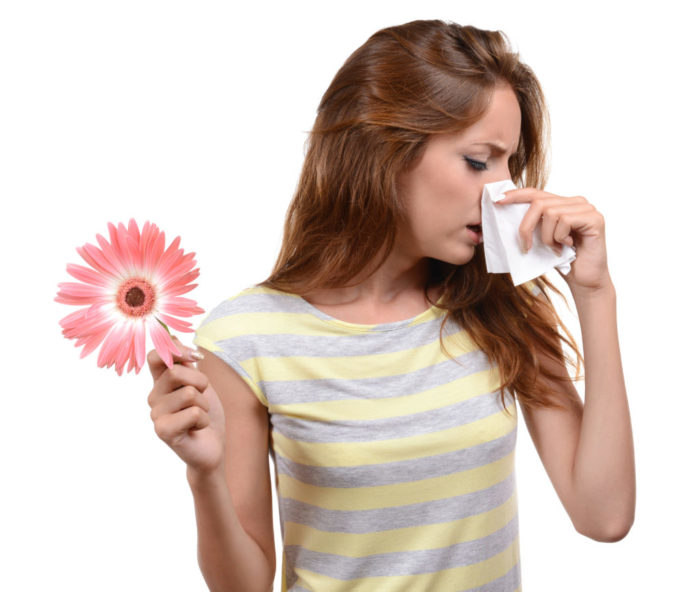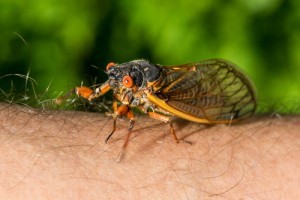Stop & Read: #1 Lesson for Preventing Allergies

[updated July 2019]
During one of the first lectures, I ever attended in allergy fellowship training was from esteemed Professor Vincent Beltrani, from the Columbia College of Physicians and Surgeons, a double-boarded allergist and dermatologist (one of a handful in the entire country.) In a room full of young allergists, Dr. Beltrani roared in his Brooklyn accent:
“Just remember to tell your patients that they are never allergic to anything the first time they are exposed to it…whether a food, pollen in the air or an insect sting. It is only from repetitive exposure that an allergy can develop.”

These wise words have stuck in my mind when diagnosing patients with various types of allergies: skin rashes, respiratory problems and especially food or drug reactions. In the Science section of The New York Times, the article on Allergies in the Time of Research clearly demonstrates this principle. The article describes how a researcher, Dr. Andrew Martin, who was studying cicadas, the insects that make that loud buzzing noise in the summer, found that a month into his research started getting watery, itchy eyes, shortness of breath and would begin sneezing every time he touched the cicadas. Due to repeated exposure, Dr. Martin developed an allergy to mold.
According to the article, “it turns out to be a little-discussed but fairly common occupational hazard of science. An estimated 15 to 20 percent of researchers who work with mice and rats, for instance, may eventually become allergic to the animals, said Dr. Karin A. Pacheco, an assistant professor of environmental and occupational health sciences at National Jewish Health in Denver. The real number could be even higher, because some people who become allergic may never report it, valuing their job above their health or comfort, Dr. Pacheco said.”
The first time you are stung by a bee you won’t be allergic. Or the first time you eat peanuts you likely won’t be allergic. You have to be exposed to the antigen and then develop an immune response to it.
I frequently hear stories in my practice of how patients develop an allergic reaction to something they never had a problem with previously.
Examples of Patients Developing Allergies to Everyday Things
“I had strawberries with fruit and now I’m itching all over with a rash. I don’t understand – I’ve had strawberries a million times…”
Or,
“I grew up with dogs and then I went off to college and now when I visit my parent’s home I experience shortness of breath around my dog, how can that be?”
And finally, regarding medications:
“I frequently get sinus infections and I usually am prescribed Amoxicillin because it works, but this time I got hives all over my body.”
Rotation is Key
All of these examples are illustrations of the principle that reoccurring exposure can cause an allergy in an allergic (also called atopic) person. My advice to anyone with an allergic history or who has a family history (genetic) is Rotation, Rotation…and, you guessed it…Rotation.
The number one lesson in helping to prevent and reduce the incidence of especially food and medication allergies is rotating these when possible. I frequently advise patients with food allergies to not only avoid the foods they are obviously allergic to but to rotate the foods they enjoy. Why? I commonly see that patients feel “safe” eating certain foods and out of habit will eat the same foods day after day. This is a problem when someone has allergic tendencies because they can build new allergy antibodies (IgE) to the food they assumed they wouldn’t become allergic to. Once a new food allergy develops, it can’t be reversed.
The same idea holds for medications. If you are prone to sinus infections or bladder infections where chronic use of antibiotics is needed, please discuss with your doctor about rotating your medication so that you don’t develop an allergy to the antibiotic or resistance of the bacteria being treated.
Exciting News for People with Food Allergies
Avoidance has historically been the best way to deal with dangerous food allergies but now we can actually provide treatment for food allergies. Much like we do with environmental and pet allergies, we can help you build up a tolerance to the foods you are allergic to.
One Last Interesting Finding:

If an allergen to a food or medication is avoided for many years, there is the possibility that the allergy can disappear as well. Please never ignore the signs of an allergic reaction to a food or medicine and think it is a minor nuisance. A mild allergic reaction can easily become a full-blown allergic reaction the next time.
Enjoy the rest of your summer –and use plenty of sunscreens – Doctor’s orders.
Dr. Dean Mitchell
Mitchell Medical Group, NYC & Long Island
About the Author – Dr. Dean Mitchell, M.D.
Dr. Dean Mitchell, M.D. is a Board Certified Allergist and Immunologist based out of NYC. He graduated from the Sackler School of Medicine and completed training at the Robert Cooke Allergy Institute in New York City. He is also a Clinical Assistant Professor at Touro College of Osteopathic Medicine, a fellow of the American Academy of Allergy, Asthma, and Immunology, and the author of Dr. Dean Mitchell’s Allergy and Asthma Solution: The Ultimate Program for Reversing Your Symptoms One Drop at a Time. Dr. Dean Mitchell, M.D. has also been featured in The New York Times, The Huffington Post, Fitness Magazine, Dr. Oz and News NY 1. Dr. Mitchell also hosts the podcast The Smartest Doctor in the Room – a combination of a lively, personal and in-depth interview with top healthcare specialists.
References:
Rosner, Hillary. “Allergies in the Time of Research.” The New York Times, July 21, 2013. https://www.nytimes.com/2013/07/23/science/allergies-in-the-time-of-research.html
Pet Allergy Overview, Mayo Clinic. https://www.mayoclinic.org/diseases-conditions/pet-allergy/symptoms-causes/syc-20352192
Diagnosing and Treating Allergies in Dogs, March 2019. https://yourdogadvisor.com/dog-allergies/



